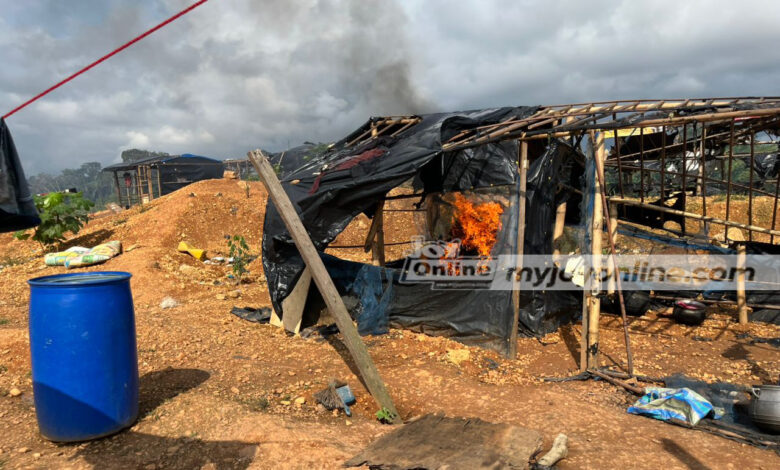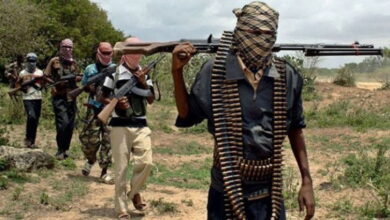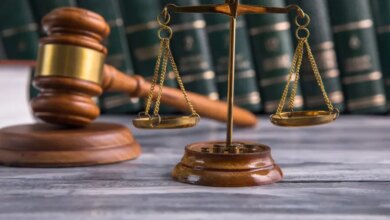The fight against illegal mining in Ghana: Is there a need to declare a state of emergency?


The effect of illegal mining, otherwise known as galamsay, is now common knowledge: Polluted water bodies with a congenital effect on aquatic life and the destruction of farmlands with their attendant threat to food security are just a few that can be cited.
It is worth pointing out that the problem has persisted over the past eight years.
Since the inception of the current government, there have been calls from civil society organisations, amongst others, for a declaration of a state of emergency over the menace.
This author seeks to determine whether, in the face of what appears to be a dire situation, the circumstances are ripe for the declaration of a state of emergency.
Under what circumstances may the president declare a state of emergency? For an answer, the provisions of article 31(9)(a)&(b) come in handy.
Article 31(9) provides as follows: “The circumstances under which a state of emergency may be declared under this article include a natural disaster and any situation in which any action is taken or is immediately threatened to be taken by any person or body of persons which –
“(a) is calculated or likely to deprive the community of the essentials of life; or
“(b) renders necessary the taking of measures which are required for securing the public safety, the defence of Ghana and the maintenance of public order and of supplies and services essential to the life of the community.”
The essential ingredients in the quotation above are the following:
(I) a natural disaster,
(ii) any situation taken; or
(iii) any situation immediately threatened to be taken
(v) (ii) &(iii) must be calculated or have the likelihood to deprive the community of the essentials of life.
(vi) and must necessitate the taking of measures which are required for securing the public safety, the defence of Ghana and the maintenance of public order and of supplied and services essential to the life of the community.
The anticipated measures under a state of emergency are the suspension or the modification of the enjoyment of human rights under chapter 5 of the Constitution including the right to life and the right to property, to mention but these.
The position taken here has support in the provision of article 31(10) which says as follows: “Nothing in, or done under the authority of, an Act of Parliament shall be held to be inconsistent with, or in contravention of, articles 12 to 30 of this Constitution to the extent that the Act in question authorises the taking, during any period when a state of emergency is in force, of measures that are reasonably justifiable for the purposes of dealing with the situation that exists during the period.”
It goes without saying, at this stage that the provisions of article 31(9)(a)&(b) by themselves do not provide sufficient basis for the declaration of a state of emergency. In addition to those, there ought to be the need to suspend or modify the enjoyment of human rights in order to deal with the situation to warrant the declaration of a state of emergency.
There is also the need to note that inherent in the requirement “… renders necessary the taking of measures which are required…” is the presupposition that the measures applied during the non-state of emergency period have failed to secure the public safety and the defence of Ghana amongst others.
Thus, to declare a state of emergency, there is the need to demonstrate that the law as applied is currently ineffective in dealing with the situation.
This leads us ton the next logical question: Does the current situation render it necessary to take measures such as the suspension of the enjoyment of human rights to deal with the galamsay menace?
For the answer, it is important to note that illegal mining is not a natural disaster. It is a human activity which has led to and is still causing pollution of water bodies with its effects on aquatic life, the destruction of farm lands and forests with their attendant effects of food security to mention but these.
Certainly, this satisfies the minimum condition under article 31(9)(a)&(b) for the declaration of a state of emergency. To declare a state of emergency, however, there is the need to show that the law as applied now is incapable of dealing with the situation so as to require the suspension or modification of the enjoyment of human rights in order to deal with the situation.
Has the law as applied now failed to deal with the situation? It must be noted that this is a new administration barely nine months in office. It is too early to assess its policies and application of the law. It must be assessed on its own performance and not on the performance of its predecessor.
It is only the failure of its own policies and application of the law to deal with the manace that will necessitate the suspension or the modification of the enjoyment of human rights under a state of emergency in order to deal with the situation.
To call for the declaration of a state of emegency now, is to focus on the minimum conditions for the declaration of a state of emergency only to the utter neglect of the other requirements of law necessary to activate such a declaration. The situation may be dire but the circumstances are not ripe enough for the declaration of a state of emegency.
While illegal mining poses an existential threat to Ghana’s environment and food security, the constitutional threshold for declaring a state of emergency has not yet been met.
The situation is grave but not yet beyond the reach of ordinary law enforcement and policy intervention. A state of emergency would be justified only if, after a fair trial period, it becomes evident that the government’s renewed policies and institutional reforms have failed to contain the menace.
Until then, Ghana must intensify lawful enforcement, strengthen institutional accountability, and rally citizen support under normal constitutional governance.
What sayest thou?
–By
Emmanuel Adabayeri, a private legal practitioner.
DISCLAIMER: The Views, Comments, Opinions, Contributions and Statements made by Readers and Contributors on this platform do not necessarily represent the views or policy of Multimedia Group Limited.
DISCLAIMER: The Views, Comments, Opinions, Contributions and Statements made by Readers and Contributors on this platform do not necessarily represent the views or policy of Multimedia Group Limited.
Source link





